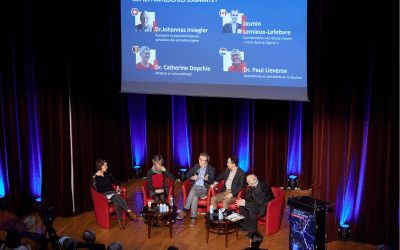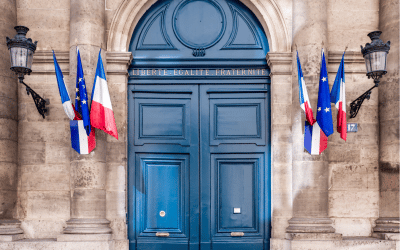At the announcement of the verdict concerning Dr Bonnemaison decided by an appellate judgment at the Angers Court of Assizes for seven presumed cases of euthanasia from 2010-2011 at the Bayonne hospital, Alliance VITA joins the following press release, published by the movement Soulager mais pas tuer (Relieve Suffering Without Killing), one of VITA’s partners.
Soulager mais pas tuer considers Dr Bonnemaison’s conviction by the Court of Assize in Angers partially reassuring, in spite of the confusion maintained in the courtroom surrounding the practices of hidden euthanasia.
Tugdual Derville, one of the spokespersons for the movement Soulager mais pas tuer and the author of The Battle of Euthanasia (Salvator Editions) and the Alliance VITA’s General Delegate: “We are partially reassured, in spite of the confusion maintained during this trial by euthanasia supporters. This conditional sentence, voted by the popular jury during the appeal, has the merit to partially rebalance the judiciary treatment of this painful affair. The acquittal in Pau gave rise to troubling consequences, seeming to clear a caretaker of committing a solitary deed to end the lives of those who are very vulnerable. This is the reason why we requested that the public minister appeals this decision. By distancing the trial from Bayonne, it was hoped that the second trial would be more serene and less emotionally charged. It would certainly have been considered too excessive to punish the doctor too harshly, since he is already suffering from the scandal and the judiciary procedure, and has already been sanctioned by his professional order. This sentence, which remains a little bit symbolic, gives justice to one of the suffering civil parties. The parade of multiple witnesses having no link with the concerned accusations, some coming from Belgium, transformed the courtroom into a stage for euthanasia supporters.
This verdict especially confirms the ambiguity in the protocols of “deep and continual sedation until death” which the End of Life law proposal promotes and whose discussion will soon be finished in Parliament. This second trial for Bonnemaison confirms the urgency to clarify sedation: this practice would be discredited if it transgressed medical integrity which calls for the caretaker to always relieve suffering without ever killing. More specifically, there are millions of elderly people in our country who can legitimately ask about the level of protection when they arrive in overcrowded emergency services. Will they really be taken care of? Who will protect them from an all-powerful practician committing an act in solo, tempted to prescribe a sedative overdose to practice masked euthanasia. With the civil parties and the number of caretakers shocked by the Bonnemaison case, we see that a part of society prefers to protect a doctor by clearing him of unjustifiable protocols. It’s as if the ban on killing should have exceptions in cases of extreme vulnerability, either linked to age or dependency of severe illness. On the contrary, it is when life is most vulnerable that the ban to kill is even more indispensable to establish trust between caretakers and patients. It is on this basis that dialogue between the patient and his family and the medical team – which was often lacking in Dr. Bonnemaison’s practice – which must constantly be established and renewed. Today, we take note with this verdict, which corrects the one given by the Court of Assize in Pau, that it could be no jurisprudence for decriminalization of euthanasia.
The movement Soulager mais pas tuer remains active to insure that the future law about end of life does not further accentuate the confusion surrounding the doubtful practices of sedation.”



